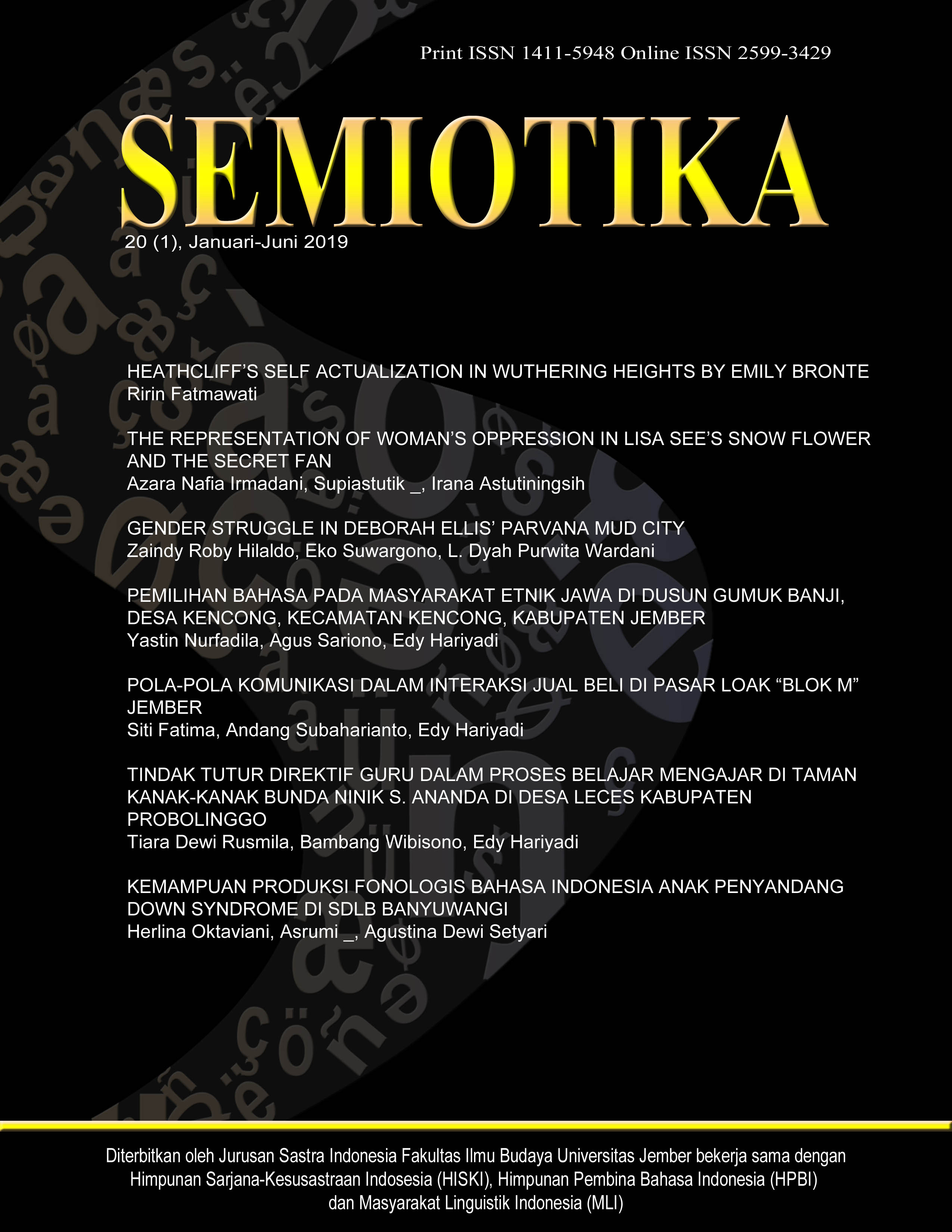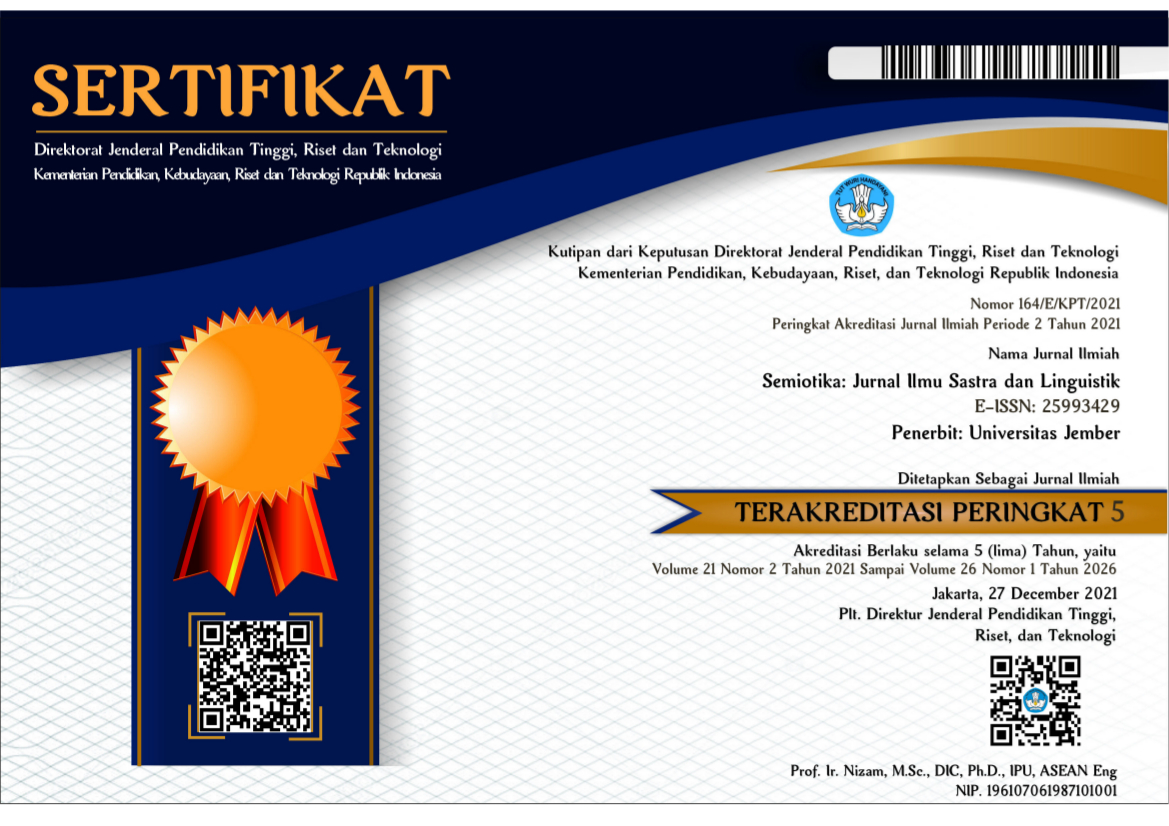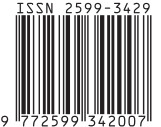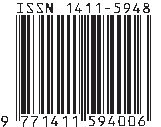PEMILIHAN BAHASA PADA MASYARAKAT ETNIK JAWA DI DUSUN GUMUK BANJI, DESA KENCONG, KECAMATAN KENCONG, KABUPATEN JEMBER
Abstract
The Gumuk Banji community is a multi-ethnic society (consisting of Javanese, Madurese, and Chinese ethnic) and a bilingualist society (who masters Javanese, Madurese, and Indonesian). In a bilingualism society, there is always the problem of language choice because each language variety has its own function in the community. This article aims to describe the form of language choice and explain the determinants of language choice in the Javanese ethnic community in Gumuk Banji Village. The study was conducted using qualitative methods. Data collected by questionnaire and interview. The sample is determined by purposive random sampling technique. Data analysis was carried out in three stages: (1) data reduction, (2) data presentation, and (3) conclusion / verification. Data collected by questionnaire and open interview. The data interpretation stage is carried out using context analysis of the speech component. The results are stated as follows. The language varieties chosen in the family domain successively from the highest to the lowest frequency are the Javanese variety of ngoko, the Javanese variety of manners, and Indonesian; in the realm of neighborhoods: Javanese with a variety of ngoko, Javanese with a variety of manners, Madura with a variety of languages, and Indonesian; and in the realm of transactions: the Javanese variety of ngoko, the Javanese variety of manners, the Madurese variety of languages, and Indonesian. The factors that determine language selection in the family domain are participant factors (kinship status), speech objectives, speech media, and speech situations (formal or informal situations); in the neighboring domain are participant factors (ethnic similarities or differences, age and social status factors, and social relations factors), and the situation of speech (formal and informal), and in the domain of transactions are participant factors (ethnic similarities or differences).
SEMIOTIKA has CC-BY-SA or an equivalent license as the optimal license for the publication, distribution, use, and reuse of scholarly work. Authors who publish with this journal retain copyright and grant the journal right of first publication with the work simultaneously licensed under a Creative Commons Attribution-ShareAlike 4.0 International License that allows others to share the work with an acknowledgment of the work's authorship and initial publication in this journal.
Attribution-ShareAlike
CC BY-SA










